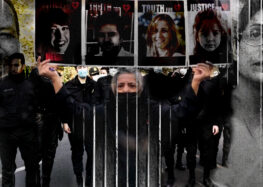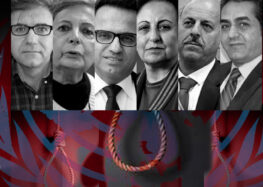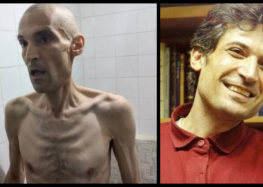Evin Prison Repeatedly Blocking Nasrin Sotoudeh From Seeing Her Children
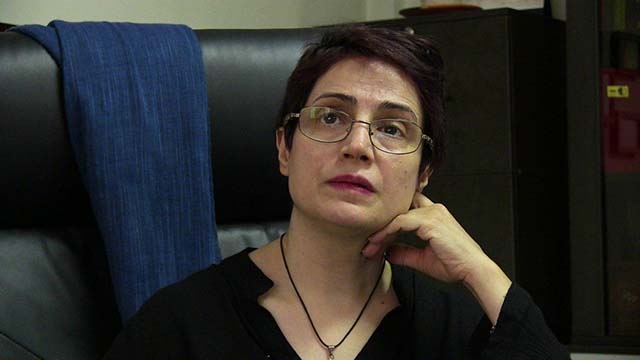
Defense attorney Nasrin Sotoudeh continues to be denied family visits in Iran’s Evin Prison where she has been held on trumped-up national security charges since June 2018, this time under the pretense of having a “small scissor” in her cell, which is allowed in the prison’s Women’s Ward.
“The prison is full of scissors and other tools,” Sotoudeh’s husband Reza Khandan wrote on Facebook January 13, 2019.”
“If finding a small scissor can result in children being blocked from seeing their mother, then every prisoner in this facility should be permanently denied visitation,” he added.
Khandan pointed out that prisoners in the Women’s Ward of Evin Prison are allowed to keep tools to prepare their own food. Sotoudeh was previously banned from seeing her children due for allegedly wearing an “improper hijab.”
“Could the prison authorities please explain to those who don’t know about living conditions inside Evin Prison about what the inmates use to cut meat or peel fruit or chop potatoes, onions, and carrots and cut watermelons?” he wrote. “Do they use their nails or do they use all kinds of knives and cooking utensils?”
Khandan continued: “Evin Prison has practically been privatized and prisoners have to get food and tools with their own personal resources. So the whole prison is full of knives, grates, skewers and every other utensil used for cooking meals or eating fruits purchased from the prison store.”
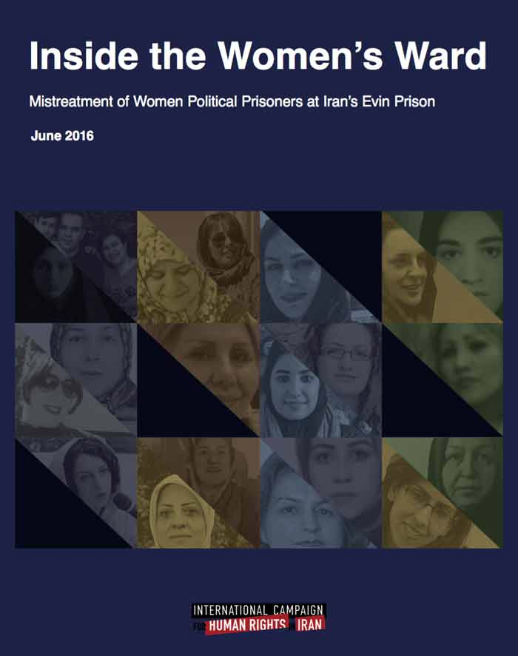
Inside the Women’s Ward: Mistreatment of Women Political Prisoners at Iran’s Evin Prison
Khandan was himself arrested and held in Evin Prison from September 4, 2018, until he was released on bail on December 28, 2018. He was detained after posting updates about his wife’s case on social media.
Sotoudeh and Khandan have a daughter and a son who have been repeatedly denied chances to see their mother in prison. Khandan wrote on Facebook that she has been banned from seeing her children for three weeks, according to an order issued by the prison’s deputy judiciary official, Mohammad Hamidi-Rad, on January 11.
Prison authorities recently also imposed blanket restrictions on phone calls in the Women’s Ward after two prisoners held there, Narges Mohammadi and Nazanin Zaghari-Ratcliffe, went on hunger strike for medical treatment.
Sotoudeh and fellow political prisoner Azita Rafizadeh also went on hunger strike in solidarity with the women.
It remains unclear whether prisoners are still facing limited phone access after the women ended their hunger strike on January 17, 2019, following approval by prison authorities for Zaghari-Ratclife and Mohammadi to receive medical treatment outside the prison.
“Every day they are putting more and more pressure on prisoners, especially the political women,” wrote Khandan. “One example is the new restrictions on phone calls in the ward for women convicted of political charges.”
Arrested on June 13, 2018, Sotoudeh is facing a five-year prison sentence, which has been appealed, as well as multiple other national security-related charges for her outspoken advocacy of human and women’s rights as well as willingness to take on politically sensitive cases as a defense attorney.
Payam Derafshan, Sotoudeh’s lawyer, told the state-run Islamic Republic News Agency (IRNA) on January 14 that he was surprised how a scissor, which is not uncommon in the ward, could be used to justify a “completely baseless ban” on a prisoner’s family visitation rights.
“Unfortunately the prison authorities are always looking for an excuse to prevent my client from seeing her children,” he said.
Derafshan added that he planned to lodge a complaint with the judiciary on Sotoudeh’s behalf to demand the ban be lifted.

